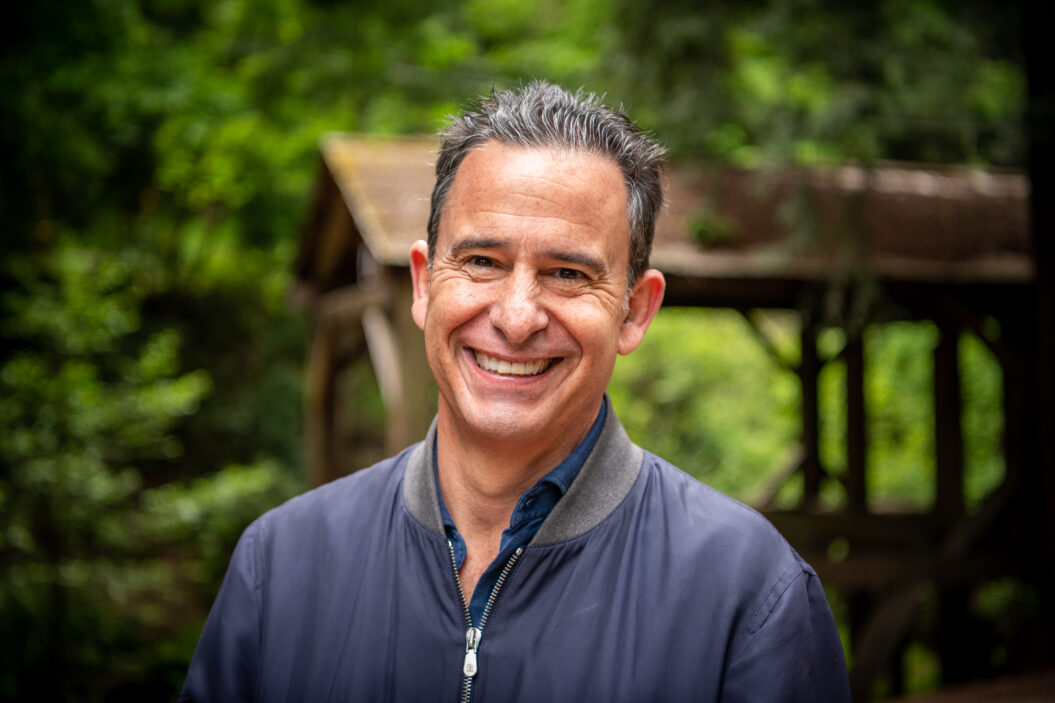Portuguese people who stand out abroad are helping to find out where business opportunities are and what kind of companies and activities the country can attract. An initiative that brings together Negócios and the Portuguese Diaspora Council.
1- What led you to leave Portugal?
I left Portugal when I was fifteen. He had completed my studies at the English school he attended, and, at that time, it was not possible to continue studying in English in Portugal. I therefore had to move to England to attend boarding school. Then, before taking my university course, I spent a year working at a bank in Paris. The “gap year” is very common in England, during which students work and travel during the year, between the end of high school and entering college – it’s a great idea, because it helps a lot to mature and gain experience. I then got my degree in Economics in England, where I worked in investment banking for 7 years, at which point I decided to apply for an MBA in the United States. After finishing my master’s degree, I worked for ten years in New York, where I met my wife and where my first child was born. I then returned to London, where I lived another decade-long cycle, and I currently live in San Francisco since 2014.
2- What advantages or disadvantages does being Portuguese bring you?
I confess that being Portuguese (I have dual nationality) only brought me advantages. Curiosity, sympathy and admiration for Portugal and the Portuguese. Without realizing it at the time, I received a lot of support from the companies I worked at and from the people I met, especially in the United States. I’m sure that this support and friendship also had a great dose of admiration and respect for the efforts of an emigrant who comes from far away!
3- What obstacles did you have to overcome and how did you do it?
The obstacles I had to overcome had little or nothing to do with being Portuguese, but more with being far from Portugal, which was always where I felt most at home and where my family lived. Changing countries, cities and industries several times, and doing so far from my family, was certainly an obstacle. To overcome this, I always made a great effort to return to Portugal as much as possible, maintain contact with friends and follow political and economic developments. Obviously, being far from Portugal, my family and my acquaintances, I had to create my own opportunities. It was necessary to learn how to deal with a different culture, and I realized very early on that it takes a lot of effort, dedication and a huge desire to be successful. I received a lot of help for which I am very grateful, and today I try to give back as much as possible. During this time, I met a lot of Portuguese people also living in England and the United States, but in fact there were no great ties between the Portuguese outside of Portugal. I have always had the opinion that Portuguese people “out there” often prefer to integrate as much as possible, forgetting a little about the Portugal they came from, often forced by lack of opportunity rather than by desire. I compare this situation, for example, with communities of Italians, French or Spaniards that I knew, who always got along well with their compatriots (sometimes too much – they didn’t even learn to speak English!). Fortunately, today Portuguese men and women abroad are very successful, with increasingly important positions, they are more confident and proud ambassadors of Portugal: the members of the diaspora spread around the world are an excellent example.
4- What do you admire most about the country where you are?
The United States is a great country to work. Laws and regulations in general are clear, transparent, respected and enforced. There is, therefore, a high level of compliance that is equal for everyone, and most people follow these rules voluntarily. And they do it because they see it as their duty and not because they fear the consequences of not doing it. Obviously, it doesn’t always happen, but in general there is a certain level of fair play, decency and respect for the community (including the State). This environment promotes respect, protection and a lot of trust, essentially for entrepreneurs and industrialists.
I also greatly admire the level of ambition at all levels. The most obvious is the size, but the ambition is much deeper. Americans strive to do their best and don’t see much drama when things don’t go perfectly. Commitment is the most important factor. I also admire a certain humility that many who live outside the United States do not know. This humility promotes an openness to new ideas, methods, business models and ways of living.
5- What do you most admire about the company or organization where you work?
My company is relatively small. What I admire most is our ambition and commitment. I also greatly admire the enormous desire we have to treat all employees in the best way possible, both in terms of respect, salary and career progression. We make a huge effort in terms of internal communication and making consensual decisions, which I greatly appreciate.
6- What recommendations would you give to Portugal and its entrepreneurs and managers?
I would like to see Portuguese entrepreneurs have more self-confidence, more ambition and be prepared to take greater risks. I know that there must be a business and financial climate to provide the necessary support, without which it will not be possible. Many Portuguese entrepreneurs prefer to be “owners” of a small business than to be partners in a larger, more ambitious and scaled business. As the Americans say, it creates more value to have a small slice of a very large pie that is growing than the majority of a small pie that does not have great prospects. Without ambition it is not possible to create a business mindset that continues to gain motivation, even when things are not going well.
7- In which sectors of the country where you live could Portuguese companies find customers?
Fortunately, and with great merit, Portugal is on the world’s lips, and this is an opportunity not to be missed. I am convinced that there is a desire and demand for Portuguese products and services. Increasingly, what is Portuguese is seen as something of great quality. My friends ask me a lot which are the best Portuguese brands. Unfortunately, many Portuguese companies prefer an “easier” path, with less risk and less effort. They choose the “white label” route for international brands. These brands are recognized worldwide for their quality and design, but few realize the Portuguese know-how involved. In the long term, it ends up being a very difficult strategy to make profitable, because it essentially depends on the price factor. I have no doubt that, for example in the area of consumption, Portugal has excellent conditions to be successful on a global level.
8- In which sectors in Portugal might companies from the country where you live want to invest?
Americans (whether individually or as a business) prioritize entrepreneurial opportunities and projects with high growth rates, and above all, that are scalable. In the past, generally with few exceptions, the size of the Portuguese market has not satisfied American businesses. The hospitality sector is starting to have a lot of interest, but then the size is limiting. A digital world changes everything. One of the great advantages of digitalization is that it allows us to grow and reach markets far beyond the national level, with much lower investment levels. Ambitious and differentiated projects with these objectives are always of interest to American investors.
9- What is the competitive advantage of the country you live in that could be replicated in Portugal?
In theory, the advantage of a small country is that it should be relatively easy to make changes in principle. For example, just look at the successful (and globally recognized) efforts to combat drug use in Portugal. The “soft” competitive advantage of Americans is having determination, ambition, imagination and will. These qualities are beginning to be recognized in Portugal. Unfortunately, many times and for many reasons, to achieve ambitious professional and personal goals it is necessary to leave Portugal. The Portuguese have many successful “role models” at a global level: in music, art, sport, politics, business. Just look at the CVs of members who are part of the diaspora to understand that the Portuguese “compete” at a global level in any sector. There is no shortage of raw materials! But in Portugal there has been a lack of educational, cultural, financial and institutional support. With some commitment, I am convinced that the Portuguese could very quickly also develop the “soft” competitive advantages of the Americans that I mentioned before.
10- Do you plan to return to Portugal? Why?
I often think about returning to Portugal. As I said, this is where I feel most at home. What I appreciate most in life is Portuguese: the climate, the culture, the way of being, the friendships, and… football. Unfortunately, there are fewer professional opportunities, but I increasingly see a younger generation, well qualified, full of talent and ambition, who want to launch themselves into the world, in whatever role. They have an international vision and are perfectly up to date with the “best practices” that are increasingly part of their daily lives. I also note that there is pride in being Portuguese and a desire to support the country in general, a “social conscience”. I would really like to be able to contribute to this effort.
Read the original article here.







